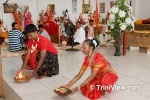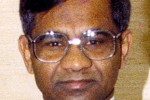By Raffique Shah
May 31, 2025
 I have said this—what I’m about to write here—a hundred times over the past 20 years or so that we have marked and celebrated Indian Arrival Day.
I have said this—what I’m about to write here—a hundred times over the past 20 years or so that we have marked and celebrated Indian Arrival Day.
First, I was among a vocal minority who expressed the strong view that the holiday in recognition of the arrival of Indian immigrants on the Fatel Razack in 1845 bringing the first indentured immigrants to Trinidad and Tobago, be named Arrival Day.
Continue reading Is this what we want?




